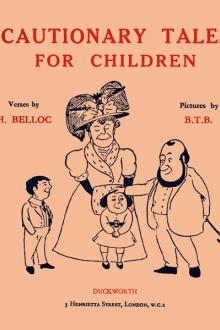Wieland; Or, The Transformation: An American Tale, Charles Brockden Brown [reading diary .txt] 📗

- Author: Charles Brockden Brown
Book online «Wieland; Or, The Transformation: An American Tale, Charles Brockden Brown [reading diary .txt] 📗». Author Charles Brockden Brown
Solitude imposes least restraint upon the fancy. Dark is less fertile of images than the feeble lustre of the moon. I was alone, and the walls were chequered by shadowy forms. As the moon passed behind a cloud and emerged, these shadows seemed to be endowed with life, and to move. The apartment was open to the breeze, and the curtain was occasionally blown from its ordinary position. This motion was not unaccompanied with sound. I failed not to snatch a look, and to listen when this motion and this sound occurred. My belief that my monitor was posted near, was strong, and instantly converted these appearances to tokens of his presence, and yet I could discern nothing.
When my thoughts were at length permitted to revert to the past, the first idea that occurred was the resemblance between the words of the voice which I had just heard, and those which had terminated my dream in the summer-house. There are means by which we are able to distinguish a substance from a shadow, a reality from the phantom of a dream. The pit, my brother beckoning me forward, the seizure of my arm, and the voice behind, were surely imaginary. That these incidents were fashioned in my sleep, is supported by the same indubitable evidence that compels me to believe myself awake at present; yet the words and the voice were the same. Then, by some inexplicable contrivance, I was aware of the danger, while my actions and sensations were those of one wholly unacquainted with it. Now, was it not equally true that my actions and persuasions were at war? Had not the belief, that evil lurked in the closet, gained admittance, and had not my actions betokened an unwarrantable security? To obviate the effects of my infatuation, the same means had been used.
In my dream, he that tempted me to my destruction, was my brother. Death was ambushed in my path. From what evil was I now rescued? What minister or implement of ill was shut up in this recess? Who was it whose suffocating grasp I was to feel, should I dare to enter it? What monstrous conception is this? my brother!
No; protection, and not injury is his province. Strange and terrible chimera! Yet it would not be suddenly dismissed. It was surely no vulgar agency that gave this form to my fears. He to whom all parts of time are equally present, whom no contingency approaches, was the author of that spell which now seized upon me. Life was dear to me. No consideration was present that enjoined me to relinquish it. Sacred duty combined with every spontaneous sentiment to endear to me my being. Should I not shudder when my being was endangered? But what emotion should possess me when the arm lifted aginst me was Wieland's?
Ideas exist in our minds that can be accounted for by no established laws. Why did I dream that my brother was my foe? Why but because an omen of my fate was ordained to be communicated? Yet what salutary end did it serve? Did it arm me with caution to elude, or fortitude to bear the evils to which I was reserved? My present thoughts were, no doubt, indebted for their hue to the similitude existing between these incidents and those of my dream. Surely it was phrenzy that dictated my deed. That a ruffian was hidden in the closet, was an idea, the genuine tendency of which was to urge me to flight. Such had been the effect formerly produced. Had my mind been simply occupied with this thought at present, no doubt, the same impulse would have been experienced; but now it was my brother whom I was irresistably persuaded to regard as the contriver of that ill of which I had been forewarned. This persuasion did not extenuate my fears or my danger. Why then did I again approach the closet and withdraw the bolt? My resolution was instantly conceived, and executed without faultering.
The door was formed of light materials. The lock, of simple structure, easily forewent its hold. It opened into the room, and commonly moved upon its hinges, after being unfastened, without any effort of mine. This effort, however, was bestowed upon the present occasion. It was my purpose to open it with quickness, but the exertion which I made was ineffectual. It refused to open.
At another time, this circumstance would not have looked with a face of mystery. I should have supposed some casual obstruction, and repeated my efforts to surmount it. But now my mind was accessible to no conjecture but one. The door was hindered from opening by human force. Surely, here was new cause for affright. This was confirmation proper to decide my conduct. Now was all ground of hesitation taken away. What could be supposed but that I deserted the chamber and the house? that I at least endeavoured no longer to withdraw the door?
Have I not said that my actions were dictated by phrenzy? My reason had forborne, for a time, to suggest or to sway my resolves. I reiterated my endeavours. I exerted all my force to overcome the obstacle, but in vain. The strength that was exerted to keep it shut, was superior to mine.
A casual observer might, perhaps, applaud the audaciousness of this conduct. Whence, but from an habitual defiance of danger, could my perseverance arise? I have already assigned, as distinctly as I am able, the cause of it. The frantic conception that my brother was within, that the resistance made to my design was exerted by him, had rooted itself in my mind. You will comprehend the height of this infatuation, when I tell you, that, finding all my exertions vain, I betook myself to exclamations. Surely I was utterly bereft of understanding.
Now had I arrived at the crisis of my fate. "O! hinder not the door to open," I exclaimed, in a tone that had less of fear than of grief in it. "I know you well. Come forth, but harm me not. I beseech you come forth."
I had taken my hand from the lock, and removed to a small distance from the door. I had scarcely uttered these words, when the door swung upon its hinges, and displayed to my view the interior of the closet. Whoever was within, was shrouded in darkness. A few seconds passed without interruption of the silence. I knew not what to expect or to fear. My eyes would not stray from the recess. Presently, a deep sigh was heard. The quarter from which it came heightened the eagerness of my gaze. Some one approached from the farther end. I quickly perceived the outlines of a human figure. Its steps were irresolute and slow. I recoiled as it advanced.
By coming at length within the verge of the room, his form was clearly distinguishable. I had prefigured to myself a very different personage. The face that presented itself was the last that I should desire to meet at an hour, and in a place like this. My wonder was stifled by my fears. Assassins had lurked in this recess. Some divine voice warned me of danger, that at this moment awaited me. I had spurned the intimation, and challenged my adversary.
I recalled the mysterious countenance and dubious character of Carwin. What motive but atrocious ones could guide his steps hither? I was alone. My habit suited the hour, and the place, and the warmth of the season. All succour was remote. He had placed himself between me and the door. My frame shook with the vehemence of my apprehensions.





Comments (0)